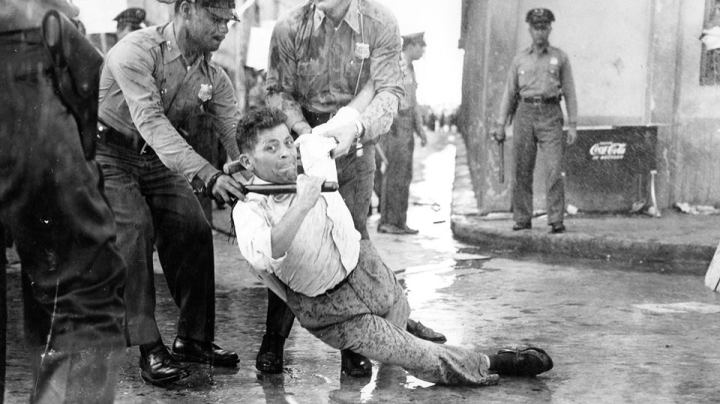This Documentary Shows a Side of Puerto Rico’s 1950 Nationalist Revolt That You Won’t Learn in Textbooks

Courtesy of the filmmakers
José Manuel Dávila Marichal‘s film 1950: The Nationalist Uprising plays like a big-screen history textbook. For those who know nothing about the failed revolutionary attempt that rocked Puerto Rico close to 70 years ago, the documentary will be eye-opening. The doc weaves archival footage from the time (including newsreels that reported on the attempted attack against then-president Harry Truman) with informative voice-over explanations, animated maps and even a number of interviews with surviving members of the Nationalist Party. Such didactic approach was always the idea. Dávila Marichal, who’d first researched the Nationalist revolt for his masters thesis, designed 1950 as the alternate history lesson many in Puerto Rico (and abroad) don’t know.
Explaining the anti-colonial ideology of Pedro Albizu Campos, the informative doc unpacks the events that led up to October 30th, 1950. That’s the date when members of the Puerto Rican Nationalist Party led a poorly coordinated attack on the government to demand independence from the United States. Fighting against American colonial rule, as well as an increasing mode of censorship (“La ley de mordaza”), the nationalists were hoping to break Puerto Rico free. Instead, the failed attacks only further showed how much military (and political) strength the U.S. was exercising in the island. As Dávila Marichal’s documentary shows, the FBI, the CIA, and a number of Puerto Rican government agents were all too eager to stamp out nationalist ideals to keep the status quo going.
“I think that documentaries are a great way to reach people,” the director shared at a post-screening Q&A during the Third Horizon Film Festival in Miami. Rather than accept the narrative that what happened in 1950 was but a mere altercation, he explains how it was the last time Puerto Rico truly had a chance at independence. “The country is a colony,” he explained, unequivocally describing the island’s current status, the 1952 referendum notwithstanding. “The government and the representatives want you to know only a version of this. This story is not part of textbooks you read in high school or university. It was an event against the colonial system. They don’t want you to know that history.”
But if he has anything to do it, he hopes his doc, which is most powerful in following the elder nationalists reminiscing about their revolutionary aspirations and their time in prison thereafter, will encourage more people to read about Don Pedro and the events of 1950. And perhaps, further question Puerto Rico’s current relationship with the United States.
1950: The Nationalist Uprising screened as part of the Third Horizon Film Festival in Miami